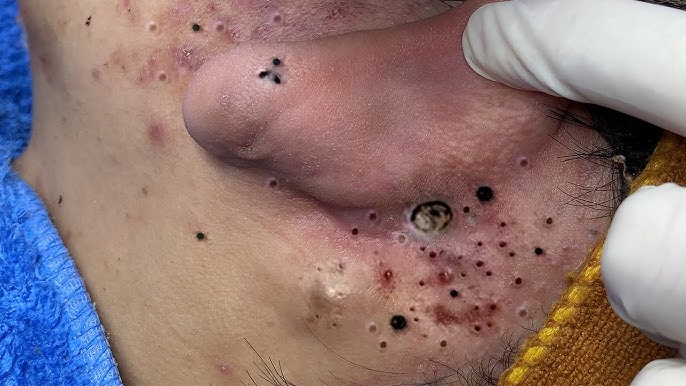Bacteria naturally live on your skin, including your face, as part of your skin’s microbiome. However, certain factors can cause bacterial overgrowth, leading to skin issues like acne, infections, or irritation. Common causes of increased bacteria on the face include:
- Touching Your Face – Hands carry bacteria from surfaces, which can transfer to your skin.
- Dirty Pillowcases & Towels – These can harbor bacteria and transfer them to your face.
- Excess Oil & Sweat – A buildup of sebum (skin oil) creates an environment for bacteria like Propionibacterium acnes to thrive.
- Not Washing Your Face Properly – Infrequent or improper cleansing allows bacteria, dirt, and oil to accumulate.
- Using Dirty Makeup Brushes & Sponges – These can collect bacteria over time and spread them when applied to the face.
- Hormonal Changes – Hormones can increase oil production, making it easier for bacteria to grow.
- Diet & Lifestyle – High sugar and dairy intake may contribute to bacterial growth by affecting oil production.
- Sweating Without Washing Afterward – Trapped sweat can create a breeding ground for bacteria.
- Compromised Skin Barrier – Harsh skincare products, over-exfoliation, or conditions like eczema can weaken the skin, making it more prone to bacterial infections.
- Sharing Personal Items – Using someone else’s makeup, razors, or towels can introduce bacteria to your face

Here are some tips to keep your face as bacteria-free as possible while maintaining healthy skin:
1. Keep Your Face Clean
- Wash your face twice a day (morning & night) with a gentle cleanser.
- Use lukewarm water (hot water can strip your skin of natural oils).
- If you sweat a lot, wash your face after workouts or outdoor activities.
2. Avoid Touching Your Face
- Your hands carry bacteria from surfaces, so try to keep them off your face.
- If you need to touch your face (e.g., applying skincare), wash your hands first.
3. Change Pillowcases & Towels Regularly
- Pillowcases collect oil, dirt, and bacteria—change them every 2–3 days.
- Use a clean face towel and avoid reusing the same one multiple times.
4. Keep Your Phone Clean
- Phones collect bacteria from hands and surfaces—clean your screen daily with an alcohol wipe.
- Try using earphones or speaker mode when possible.

5. Clean Makeup Brushes & Tools
- Wash makeup brushes/sponges weekly to prevent bacteria buildup.
- Avoid sharing makeup with others.
6. Use the Right Skincare Products
- Choose non-comedogenic (won’t clog pores) and antibacterial ingredients like salicylic acid or tea tree oil.
- Avoid over-exfoliating, as it can damage the skin barrier.
7. Eat a Skin-Friendly Diet
- Reduce sugar, dairy, and processed foods (they can trigger excess oil production).
- Eat more fruits, vegetables, and probiotics (like yogurt) to balance your skin’s microbiome.
8. Stay Hydrated & Manage Stress
- Drink plenty of water to keep your skin hydrated and healthy.
- Stress increases oil production—practice relaxation techniques like meditation or exercise.

9. Don’t Pop Pimples
- Squeezing pimples can push bacteria deeper into the skin and cause infections or scars.
- Instead, use a spot treatment with benzoyl peroxide or tea tree oil.
10. Keep Hair & Accessories Clean
- Wash your hair regularly if it’s oily and keep it off your face.
- Clean hats, scarves, and glasses that touch your face often.

